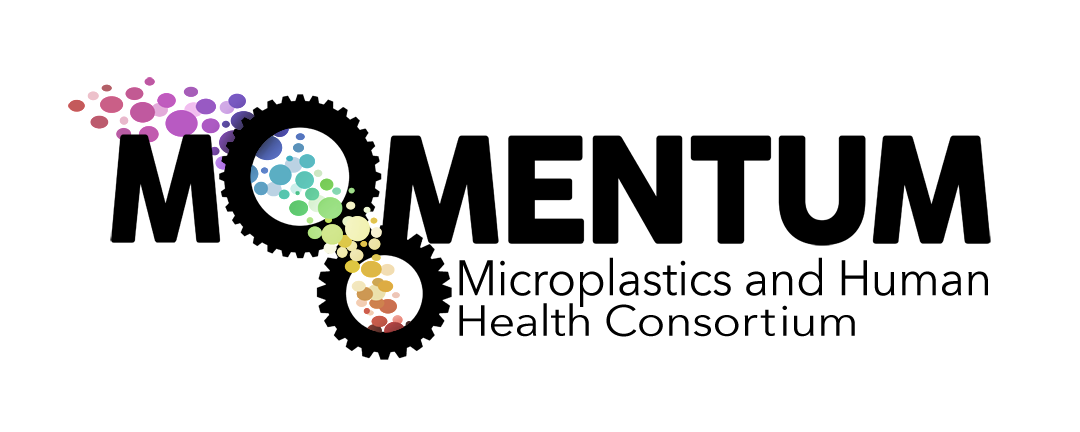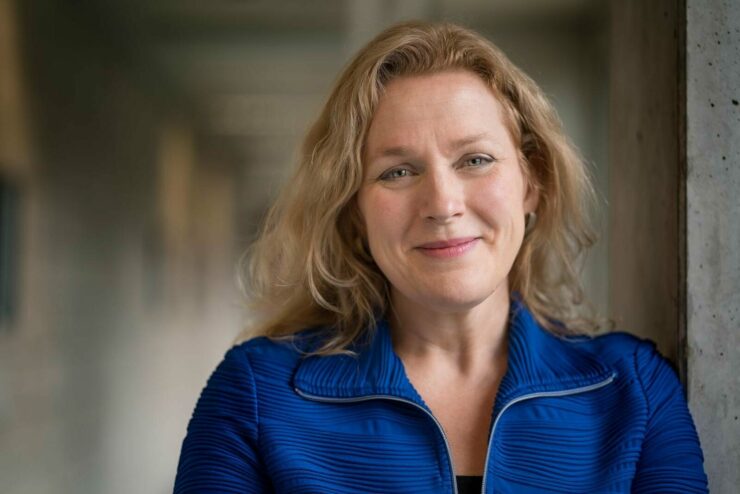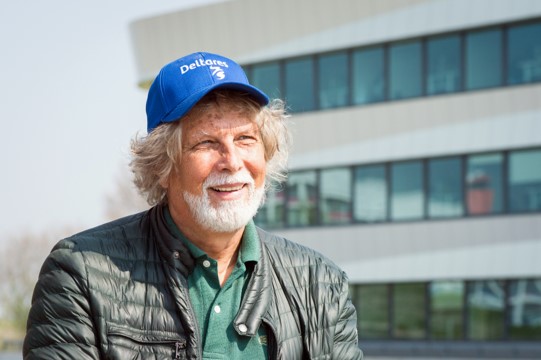News
Catching up with Juliette Legler and Dick Vethaak on microplastics and human health
The MOMENTUM project has been running for almost a year now. Where are we now and where are we heading? A lively conversation with the two project coordinators of MOMENTUM. Juliette Legler: ‘I am really looking forward to seeing each other in person next week’.
Where are we now, how is it going so far?
Dick: ‘I think we are on track. The COVID pandemic has caused a slight delay, but not to the point where we should be concerned. So far, I’m pleased with the progress.’
Juliette: ‘So am I. It’s a great honour for us to coordinate this huge multidisciplinary, diverse team, and I am very content with our progress thus far. I am happy that our reference particles have been produced and I am very grateful to TNO, Wessling, LyondellBasell, Malvern and BASF for working so hard on that. I am also really happy that all the experimental groups have their models up and running. I think that we are getting close to the point where we can move forward and start doing some testing.’
‘A new world has really opened up for me and I appreciate all the discussions with all of you’
She continues: ‘We have also been talking a lot about risk assessment and the kind of data we need for proper risk assessment, and about all the factors that are involved in testing these difficult microplastics. A new world has really opened up for me and I appreciate all the discussions with all of you, making the best science possible for the future of this field.’
How do you make everyone feel involved in a project with so many partners?
Dick: ‘I think that one of the blessings in disguise of this pandemic is that we are getting more used to online communication. That makes it easier to connect, but of course we hope and aim for more in-person communication. Juliette’s motivating power and inspiring smile are major binding factors for me.’
Juliette: ‘Thank you! It makes me smile even more, when I hear that. For me, making everyone feel involved is a challenge, because we are all busy in our own labs and our own groups, doing our own thing. We are making every effort within our work packages to meet and discuss with one another. Dick and I are really making it a goal to be at these work package meetings, so we can get an overall view of what is happening. Please continue to meet with each other, and if you feel like you are not really involved in the project, please let us and your work package leader know, because this project only works if we all work together.’
‘We all depend on each other, so we need short lines of communication. I am really looking forward to our consortium meeting next week, where we will be seeing each other in person again. I cannot wait to meet all the new members of our consortium.’
What are the challenges within the project?
Dick: ‘Managing a very complex project like this, especially in a world where these other big projects are exploring the same subject is a big challenge in itself. But for me, the ultimate challenge is to get more follow-up funding. After the three years we have for MOMENTUM, we need more money to extend into the Post MOMENTUM project.’
‘I am really excited to continue our role as frontrunners in microplastics and human health in the Netherlands’
Juliette: ‘We are really happy that we have received additional financing for the MoreMOMENTUM project through ZonMw. This really is a stepping stone to more. We are working together with ZonMw and other partners to see how we can increase funding for this research beyond the planned end of MOMENTUM in 2024. If you have any ideas, please let us know. We will finish what we have started in these three years, but there is so much more to do in this field! I am really excited to make this a long-term Public-Private Partnership, to create this infrastructure in the Netherlands and to continue this role we have as front runners in microplastics and human health.’
What is your personal mission in this project? When will the project be successful?
Dick: ‘As a project coordinator, I would say that at the end of the project we should have all milestones and deliverables in order. But for me personally, the mission is to keep the project going on after the planned three-year period and possibly to raise a few million euros more to do so. We have already begun discussing how we can achieve this, with ZonMw, Health~Holland, the top sectors and different ministries, and collecting more financing is my ultimate goal.’
Juliette: ‘I completely agree with that. From the classical scientific perspective, this project will be successful if we are able to communicate our results and make an impact with them. We are taking steps to better understand human health effects, how to assess the risks and to start these solution routes, so we can start to look at different ways to reduce exposure. For example, by using different plastics, or different approaches to find some solutions for this huge issue of plastics. Communication is also very important.’
Dick: ‘Communication is indeed very important. I was very surprised that when the paper about plastic particles in blood was published, it went viral. If you are in the system of these journalists, they can find you, and then you can tell them about the MOMENTUM project. We can ‘sell’ the topic much more broadly. I believe this is a very powerful thing that can make a change, and that is what this is all about.’
Juliette: ‘That’s why we find a coordinated communication strategy very important and making use of each other’s talents to communicate how strong this consortium really is.’





